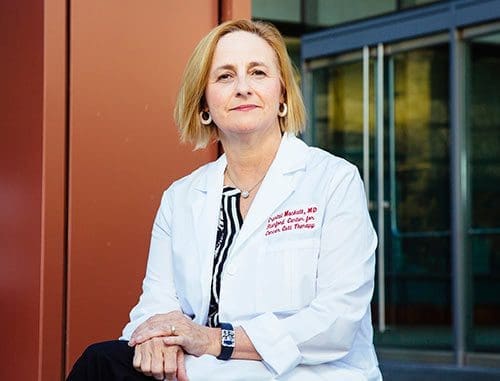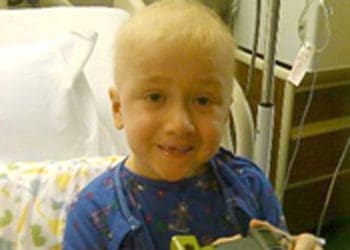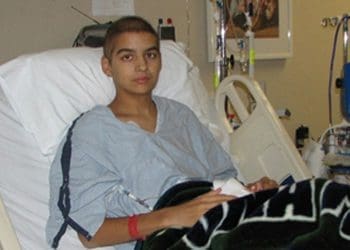Contact: Tessa Gatz
Director of Communications, CureSearch for Children’s Cancer
Phone: (240) 235-2204 | tessa.gatz@curesearch.org
PICI co-funded grant will support clinical trial testing
new treatment for deadly pediatric brain tumor
|
Bethesda, MD – September 17, 2019 – CureSearch for Children’s Cancer announces its 2019 Catapult Award has been granted to immunologist Crystal Mackall, MD. Co-funded by the Parker Institute for Cancer Immunotherapy (PICI), this $1.2 million award will fund a novel trial examining GD2 CAR T-cell therapy in diffuse intrinsic pontine glioma (DIPG), a highly aggressive brain tumor in children that has a 5-year survival rate of less than 1%. |
 Crystal Mackall, MD PHOTO CREDIT ELENA ZHUKOVA – LUCILE PACKARD FOUNDATION FOR CHILDREN’S HEALTH |
Mackall is a professor of pediatrics and medicine at the Stanford University School of Medicine, where she leads the Cancer Immunology and Immunotherapy Program, serves as associate director of the Stanford Cancer Institute and is the director of the Parker Institute for Cancer Immunotherapy (PICI) at Stanford. She previously served as the chair of Pediatric Oncology at the National Cancer Institute, where she led an internationally recognized translational research program conducting numerous first-in-human and first-in-child clinical trials. Mackall’s team was also one of the first to demonstrate the activity of CD19-CARs and CD22-CARs in pediatric leukemia.
“No child should ever have to face a devastating diagnosis like DIPG without effective and safe treatment options,” said Kay Koehler, CureSearch CEO. “That’s why we are laser-focused on funding cutting-edge research that addresses areas of unmet need in pediatric cancer research.”
DIPG is the leading cause of childhood brain tumor deaths. With a median survival of nine months, 90% of children will die from the disease within two years of diagnosis. Over the last three decades, over 250 clinical trials testing radiotherapy and/or chemotherapy have been performed with no improvements in overall survival. Now, Mackall’s innovative CAR T-cell therapy offers a trailblazing new approach to treating this deadly tumor.
###
About CureSearch for Children’s Cancer
CureSearch for Children’s Cancer, a national nonprofit organization based in Bethesda, MD, works to end childhood cancer by driving targeted and innovative research with measurable results in an accelerated time frame. CureSearch focuses on advancing the strongest research out of the laboratory and into clinical trials and development, where better, less-toxic treatments can quickly help children. CureSearch Catapult Awards support high impact, clinic ready projects as part of an overall research strategy focused on moving treatments into development in an accelerated timeframe.
For more information, visit curesearch.org, follow CureSearch on Twitter @curesearch or join the conversation on Facebook at facebook.com/curesearch.
About the Parker Institute for Cancer Immunotherapy (PICI)
The Parker Institute for Cancer Immunotherapy (PICI) brings together the best scientists, clinicians and industry partners to build a smarter and more coordinated cancer immunotherapy research effort.
The Parker Institute is an unprecedented collaboration between the country’s leading immunologists and cancer centers. The program started by providing institutional support to six academic centers, including Memorial Sloan Kettering Cancer Center, Stanford Medicine, the University of California, Los Angeles, the University of California, San Francisco, the University of Pennsylvania and The University of Texas MD Anderson Cancer Center. The institute also provides programmatic support for top immunotherapy investigators, including a group of researchers at Dana-Farber Cancer Institute, Robert Schreiber, Ph.D., of Washington University School of Medicine in St. Louis, Nina Bhardwaj, M.D., Ph.D., of the Icahn School of Medicine at Mount Sinai, Philip Greenberg, M.D., of the Fred Hutchinson Cancer Research Center, Stephen Forman, M.D., of City of Hope, and James Heath, Ph.D., of the Institute for Systems Biology.
Want more stories like this?
Get emails that matter, when it matters.



